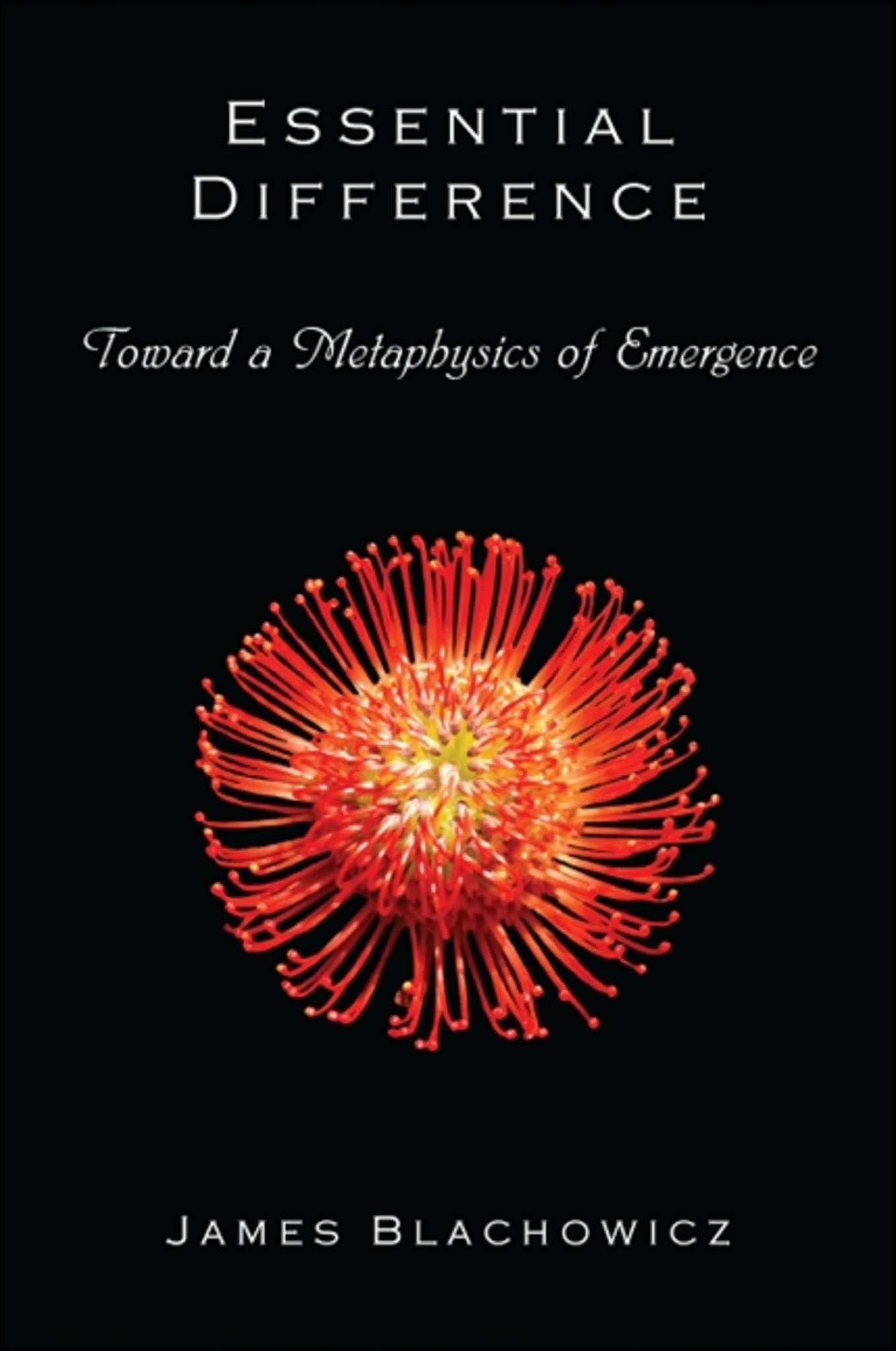We're sorry. An error has occurred
Please cancel or retry.
Essential Difference

Some error occured while loading the Quick View. Please close the Quick View and try reloading the page.
Couldn't load pickup availability
- Format:
-
01 September 2012

Proposes a new way of understanding the nature of metaphysics, focusing on nonreductionist emergence theory, both in ancient and modern philosophy, as well as in contemporary philosophy of science.
Finalist for the 2015 John N. Findlay Award in Metaphysics presented by the Metaphysical Society of America
Is metaphysics possible? This book argues that the greatest threat to its viability derives from a self-destructive formalism. If what is essential to the nature of physical entities are the properties they have in common (as formalism holds), the inevitable result will be a reductionist collapse-leaving only "being" or physical "matter" or some other underlying ground. In Essential Difference, James Blachowicz first constructs a one-to-one historical parallel between the modern crisis surrounding formalism (Hume/Kant/Hegel) and the ancient version (Parmenides/Plato/Aristotle), focusing on the principles of differentiation and individuation that underlie Aristotle's and Hegel's antireductionist programs. He then proposes a contemporary metaphysical theory of emergence in the context of recent philosophy of science. This theory, founded on the principle of the nonderivability of actual states from possible states, holds that the differences among physical, biological, and mental phenomena are essential to any metaphysics. Essential Difference is the only focused treatment of this problem and is itself essential for any understanding of the nature of metaphysics.


Introduction
The End of Metaphysics?
Old and New Metaphysics
Plan of the Book
Metaphysical vs. Epistemological "Emergence"
1. What is Metaphysics?: Transcendental Knowledge
Kinds of Knowledge
Characterizing Metaphysical Knowledge
The Possible and the Actual
Part I: The Ancient Crisis
2. Parmenides’ Challenge: Truth or Seeming
The One and the Many
Physicalist and Idealist Reductionism
Genus and Difference
Parmenides’ Two Ways
Seeming and the Sophists
3. Plato’s Response: The Form of Difference
Plato’s Program
Plato’s Parmenides
Plato’s Sophist
A Note on Dialectic
Conclusion
4. Aristotle’s Response: Differentiated Individuals
Physicalist and Idealist Reductionism
Focal Meaning (πρòς ἔν Equivocation)
Substance: Neither Substratum nor Genus
Are Aggregates Substances?
Individuation and Differentiation
Archaic vs. Contemporary Aristotle
Conclusion
Part II: The Modern Crisis
5. Hume’s Challenge: Matters of Fact or Relations of Ideas
Analytic and Synthetic Propositions
Formal Necessity or Material Contingency
6. Kant’s Response: Straining against Formalism
Idealist (Logical) and Physicalist (Sensory) Formalism
Beyond Pure Formalism?
Analysis as "Improvement" of Form
Synthetic A Priori Principles of Empirical Inquiry
Teleological Judgment beyond the Limits of Formalism
The Non-Derivability of the Actual from the Possible
Formalism and Surrogate Content
Essential Difference: Necessity without Universality
7. Hegel’s Response: A Material Logic
Platonic Definition
Categories as Definitions of Absolute
Dialectical Inference
Successive Definitions: Dialectic and the Logic of Correction
The Problem of Differentiation and Hegel’s Logic
Epistemic vs. Ontological Amplification
Hegel’s Metaphysics of Physical Entities
Conclusion
Anti-Reductionism after Hegel
Part III: Toward a Metaphysics of Emergence
8. Physical Emergence: The Constraint Interpretation
Actualizing Constraints
Individualizing Constraints
Differentiating Constraints
The Ontology of Emergence
Are Artifacts and Aggregates Physical Entities?
Are Atoms and Molecules Physical Entities?
Conclusion
9. Life and Mind: The Autonomy of Form
The Distinctive Challenges of a Non-Formalist Metaphysics
Beyond Purely Physical Emergence
The Emergence of Life
The Emergence of Mind
Autonomy and Dualism
Notes
Bibliography
Index



